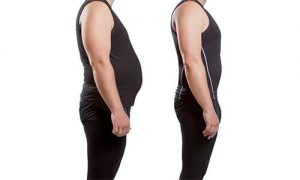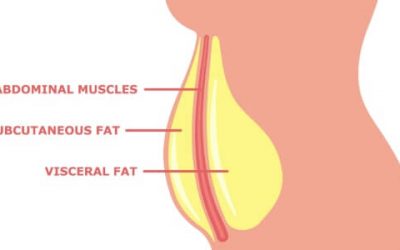
We live in a world of information saturation.
Everywhere we turn, we are bombarded with information whether we look for it or not. The internet age has utterly changed how we live; most of us have immediate access to the sum total of human knowledge with the click of a button. The collective knowledge of our entire civilisation is literally at our fingertips.

And while this is, for the most part, a positive thing, there can be drawbacks to having all this information available to us so easily. An obvious example of this would be how prone to over-analysis everyone can be nowadays; how it seems impossible to just find good advice or information without it being pulled apart, dissected, and for the smallest detail to be argued over as if someone’s life depended on it.
And with so much information available, how are we to know what to trust and what not to trust? How do we know what is accurate?
You might wonder what all this has to do with diets and losing weight. I’m glad you asked! If you want to see a good example of the modern phenomenon of over-analysing and arguing over everything, then look at the topic of weight-loss diets. Not a day goes by that someone doesn’t come up with some new, magical method of dropping pounds that was apparently previously unknown to any of us. Yet people still struggle with losing weight. Why?
What if I told you that there is one, and only one, basic factor to losing weight? That when someone loses weight on a diet (or not) it is down to a single reason and nothing else?
Well, it’s true.
People love saying complicated things. Lots of several-syllable words and impressive-sounding medical reasons that certain foods will boost your metabolism, and drinking ice-cold water is better for losing weight, and the cabbage soup diet is scientifically proven to make you look like Gwyneth Paltrow.
But physical laws are not complicated, they are very simple. And the simple fact is that we lose weight by eating fewer calories than we burn off. That is it, the basic, fundamental, unarguable fact. You can’t get around it no matter what some guru on the internet says.
But to put it in a little more detail; weight-loss diets are successful when we maintain what is known as a calorie deficit. This just means that we are burning more energy (measured in kcals) than we are ingesting through food. The diets that work, work for this reason. There is no other way for us to lose weight.
Typically a healthy, sustainable way of losing weight is by managing a slight calorie deficit of a few hundred kcals daily (in other words, if you burn 2,300 kcals per day, and you eat 2,000 kcals per day, you will lose weight!). Much more than this can often be difficult to maintain for anything but very short periods which is obviously not much use.
Clearly, at BodyScene we believe that regular physical exercise is an essential part of everyone’s weekly routine, and it will certainly contribute to maintaining a healthy and sustainable calorie deficit. But exercise is only one part of the puzzle, and no matter how hard we train, it is still only a few of the 168 hours in every week, and there is a limit to how much energy we can burn through working out.

Diet is the most important aspect to being able to lose weight. While it shouldn’t be necessary for someone who isn’t a competitive athlete to maintain a food log all the time, using an app such as myfitnesspal for a week or two can be hugely helpful to us in terms of realising what sort of energy content certain foods have. You will be surprised at how many calories are in certain foods compared to others.
Using the above information to establish how much energy you are ingesting on a daily basis, it’s also necessary to figure out how much energy you are expending, as well. This can be a little bit more complicated because there are so many factors involved (age, gender, activity levels, body mass) than can change from person to person, but there are several decent calculators online that will be able to give you a reasonable estimate (our tip is, if in doubt, you should probably underestimate how many calories you burn through everyday activities!).
So there you go; it’s that simple. Figure out how many calories you burn, eat slightly fewer calories than that, and you will lose weight. If you think that sounds ridiculously simple, good (and just because it’s simple it doesn’t necessarily mean it will be easy).
Physical laws are simple.
And it doesn’t matter what anyone on Instagram says….you can’t change the laws of physics!


